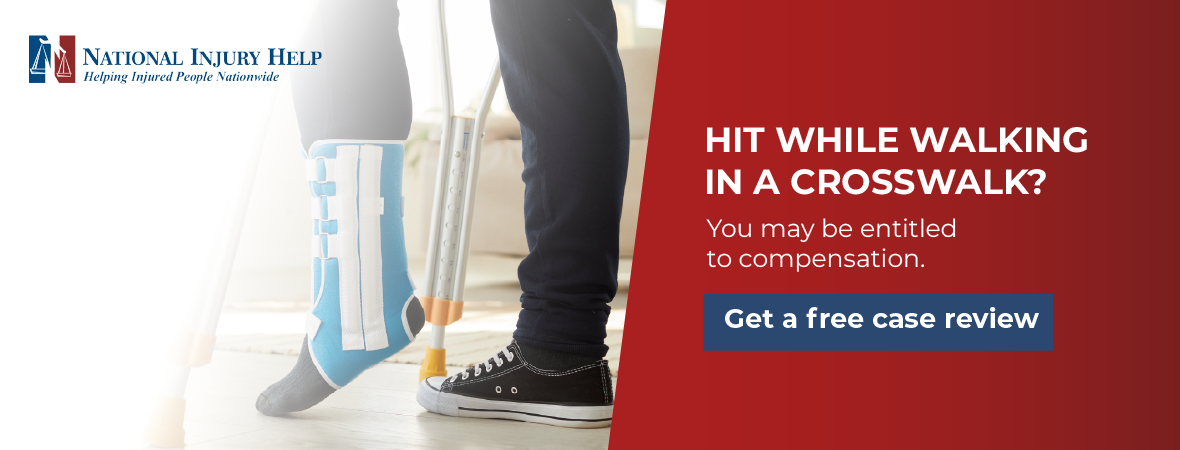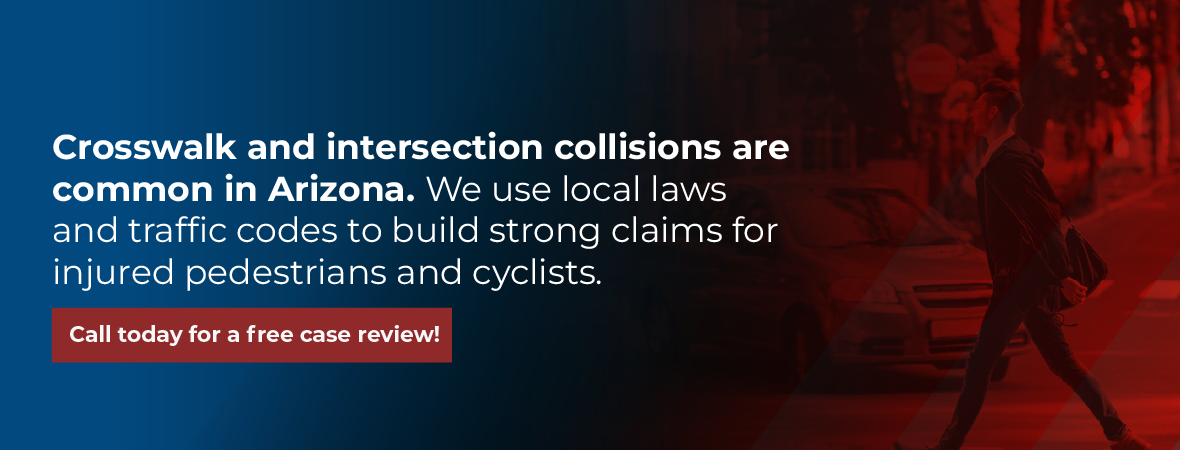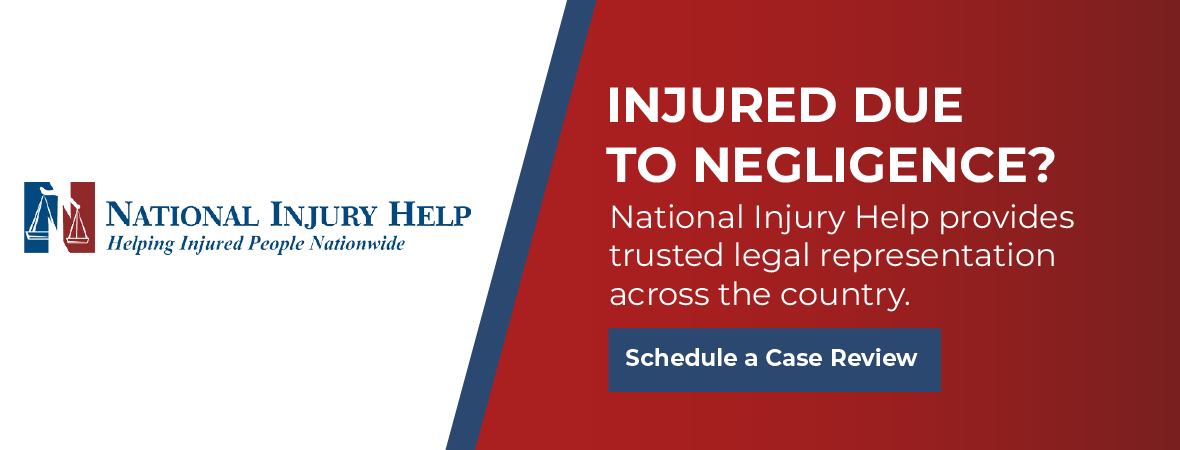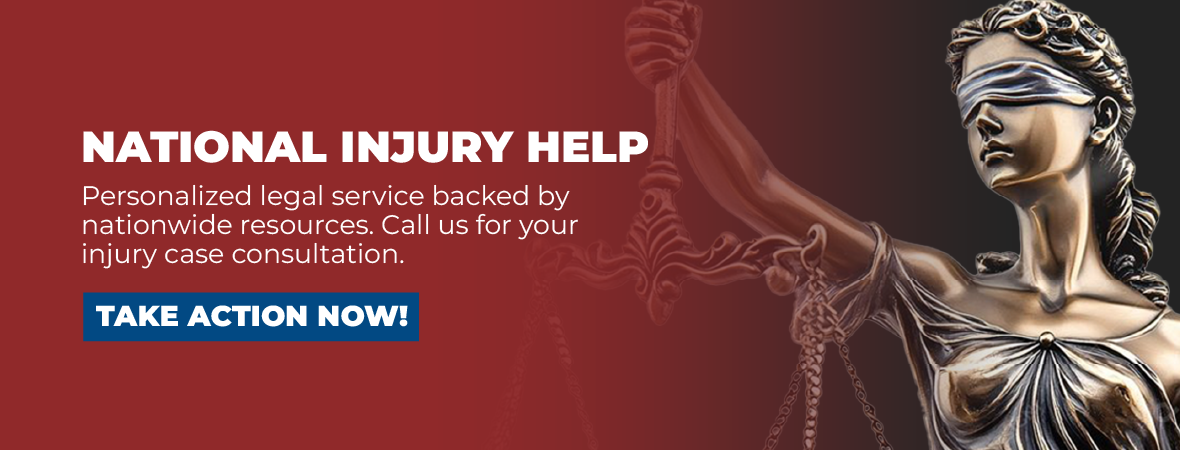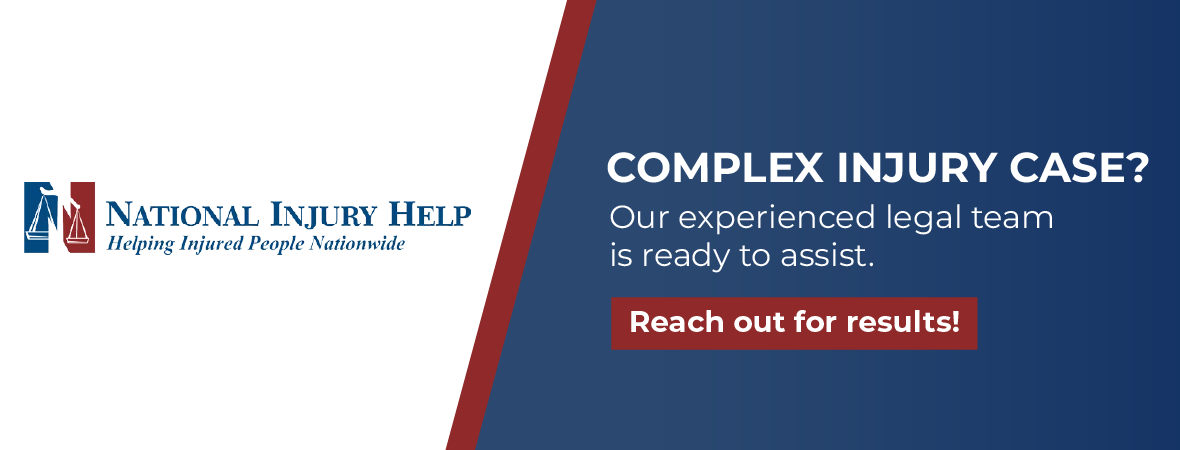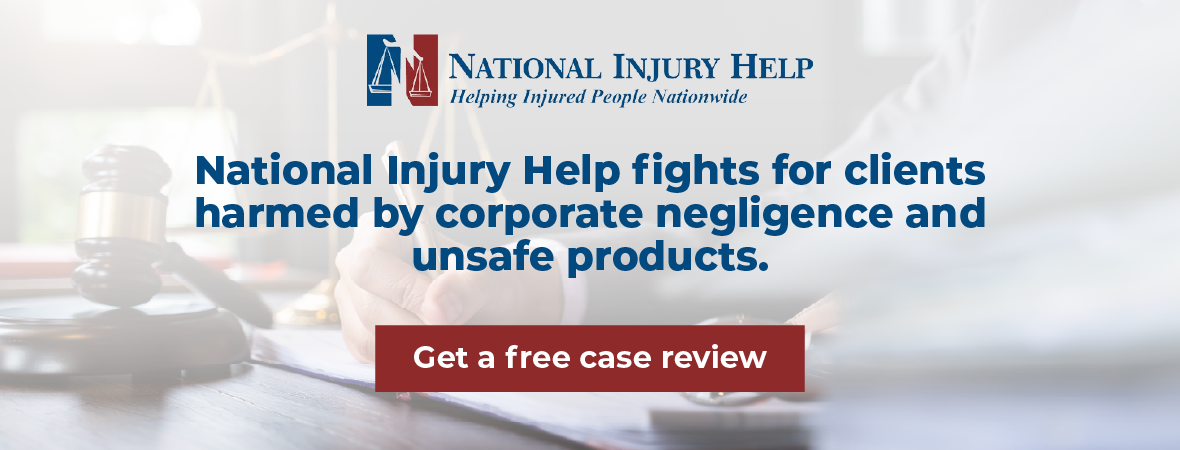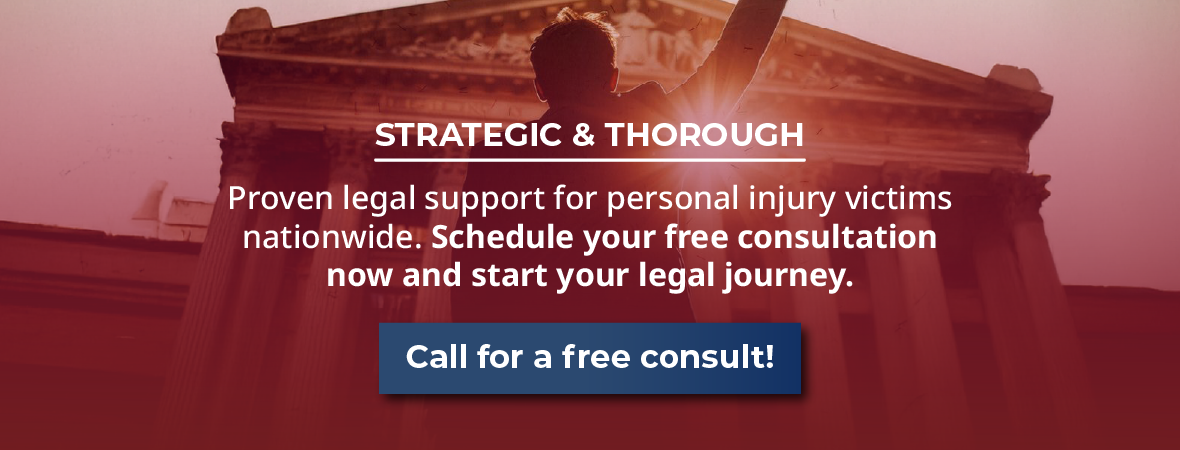As rideshare services like Uber and Lyft continue to flourish in Phoenix, the risk of accidents is also increasing. If you or a loved one has been injured in a rideshare incident, reach out to our team of Phoenix Rideshare Accident Lawyers at National Injury Help.
Rideshare services such as Uber and Lyft have changed the way people travel in Phoenix, providing convenience, affordability, and easy access from Downtown Phoenix to Sky Harbor Airport, Roosevelt Row, and even late-night pickups near Mill Avenue in Tempe. However, the rise in the number of drivers on the road has led to an increase in rideshare-related accidents. Many of these incidents result in serious injuries for passengers, pedestrians, and other motorists, as well as complicated claims and unresolved questions.
If you were injured as a passenger in a Lyft or were struck by a negligent rideshare driver, you’re not alone. These accidents can occur suddenly and often involve complex insurance coverage and legal challenges. Knowing how to respond and who to hold accountable can significantly impact your recovery.
Why Rideshare Accidents Are More Complicated Than Other Crashes
Unlike standard car collisions, rideshare accidents involve commercial activity regulated by Arizona’s transportation network company laws. Depending on the timing of the crash, whether the driver was waiting for a fare, en route to pick up a passenger, or had a passenger onboard, the available insurance coverage and potential liability can change significantly.
Complications in Uber and Lyft accidents may include:
- Multiple insurance policies (driver’s personal, Uber/Lyft’s commercial)
- Disputed fault between drivers, companies, and third parties
- Unclear accident reporting protocols for passengers and drivers
It’s not just about healing from injuries. It’s about understanding your rights and making sure you’re not left paying for someone else’s mistakes.
A Closer Look at Phoenix Rideshare Accident Hotspots
With heavy traffic on Interstate 10, State Route 51, and Camelback Road, Uber and Lyft drivers frequently navigate some of the city’s busiest corridors, often while checking apps, searching for riders, or rushing to meet demand. Popular pick-up zones like Arizona State University, Chase Field, and Desert Ridge Marketplace see higher-than-average accident rates involving rideshare vehicles.
Whether your accident occurred in Central Phoenix, Arcadia, or along McDowell Road, seeking help from a knowledgeable Phoenix rideshare accident lawyer ensures your case is properly investigated and your rights are protected.
Understanding Rideshare Accidents in Phoenix
As Uber and Lyft continue to dominate the transportation landscape in Phoenix, more residents and visitors are relying on app-based rides to get around the city. From airport pickups at Sky Harbor to bar hopping in Old Town Scottsdale, rideshare vehicles are constantly on the move. But with convenience comes risk, especially when accidents occur.
Rideshare accidents differ significantly from traditional car crashes. The presence of corporate entities, app-based driver tracking, and tiered insurance coverage introduces a level of complexity that can confuse even seasoned drivers. Understanding how these accidents happen and what makes them unique is essential if you’ve been injured in one.
What Counts as a Rideshare Accident?
A rideshare accident is any traffic collision involving a driver who is actively working for a transportation network company like Uber or Lyft. This includes several possible scenarios:
- You were a passenger in a rideshare vehicle and were injured
- You were a pedestrian, cyclist, or another motorist struck by a rideshare driver
- You are a rideshare driver injured while transporting a passenger or en route to one
Each of these cases has different legal implications and coverage limitations based on the phase in which he rideshare driver was at the time of the accident.
The Three Driving Phases in Rideshare Accidents
Uber and Lyft categorize their drivers’ activity into three phases, which affect insurance coverage and liability:
- App Off: The driver is not logged into the Uber or Lyft platform—only their personal auto insurance applies.
- App On, No Passenger: The driver is waiting for a ride request. Limited liability coverage from the rideshare company is available.
- Ride Accepted or Passenger Onboard: The driver is en route to pick up a rider or already transporting them; full commercial insurance coverage applies.
These distinctions matter because they determine which insurance company is responsible for paying your claim. A Phoenix rideshare accident lawyer can help identify the applicable phase and build a case accordingly.
Rideshare Drivers Are Not Traditional Employees
Another layer of complexity in these cases is the independent contractor status of Uber and Lyft drivers. Unlike taxi drivers employed by a single company, rideshare drivers operate as independent workers. This allows rideshare companies to limit their liability in many circumstances.
As a result, it’s not always straightforward to hold Uber or Lyft directly accountable, especially if the accident occurred when the driver was off-duty or between rides.
Who Can Be Involved in a Rideshare Accident?
Rideshare accidents in Phoenix often involve a wide range of people beyond just the rideshare driver and passenger. These accidents may affect:
- Bicyclists and pedestrians on busy streets like Jefferson Street or Van Buren
- Other motorists were struck during unsafe lane changes or turns
- Bystanders or road workers in high-traffic zones
Every rideshare accident is different, and the details surrounding it will heavily influence how a personal injury claim proceeds.
If you’ve been hurt in a collision involving a rideshare vehicle, understanding these fundamentals is the first step toward protecting your rights. Next, we’ll explore where and why these crashes tend to happen in Phoenix. Would you like me to continue with that section?
Rideshare Accident Trends in Phoenix
As rideshare services like Uber and Lyft have become integral to Phoenix’s transportation landscape, the city has witnessed a corresponding rise in accidents involving these platforms. Understanding the patterns and contributing factors of these incidents is crucial for both passengers and other road users.
Increasing Incidence of Rideshare-Related Accidents
The proliferation of rideshare vehicles on Phoenix roads has led to a noticeable uptick in traffic incidents. While specific local statistics are limited, national data indicates that the introduction of rideshare services correlates with a 2% to 3% increase in fatal traffic accidents in U.S. cities.
Several factors contribute to this trend:
- Higher Vehicle Miles Traveled: Rideshare drivers often spend significant time on the road waiting for ride requests, increasing overall traffic density.
- Distracted Driving: The necessity for drivers to interact with apps for navigation and ride management can divert attention from the road.
- Fatigue: Extended driving hours to maximize earnings can lead to driver fatigue, impairing reaction times.
Common Causes of Rideshare Accidents
Understanding the prevalent causes of rideshare accidents can aid in developing strategies to mitigate risks:
- Distracted Driving: Interacting with the rideshare app or GPS can take drivers’ attention away from driving.
- Speeding: In an effort to complete more rides, some drivers may exceed speed limits.
- Impaired Driving: Although rideshare services aim to reduce drunk driving, instances of impaired rideshare drivers have been reported.
- Inadequate Vehicle Maintenance: As drivers are responsible for their own vehicle upkeep, lapses can lead to mechanical failures.
High-Risk Areas in Phoenix
Certain areas in Phoenix have been identified as hotspots for rideshare-related accidents due to high traffic volumes and frequent rideshare activity:
- Downtown Phoenix: The concentration of nightlife venues and events leads to increased rideshare usage and congestion.
- Tempe near Arizona State University: The student population and campus events contribute to high rideshare demand.
- Sky Harbor Airport: The constant flow of travelers results in a high density of rideshare pickups and drop-offs.
Implications for Passengers and Other Road Users
The rise in rideshare-related accidents has several implications:
- Insurance Complexities: Determining liability can be challenging due to the layered insurance policies of rideshare companies.
- Legal Challenges: Victims may face difficulties in navigating claims against large rideshare corporations.
- Safety Concerns: Both passengers and other road users may be at increased risk due to the factors mentioned above.
Given these trends, individuals involved in rideshare accidents need to seek knowledgeable legal counsel to navigate the complexities of such cases.
Arizona Laws & Insurance Coverage in Rideshare Accidents
Rideshare services such as Uber and Lyft operate under specific legal and insurance frameworks in Arizona that differ from standard motor vehicle coverage. If you’ve been involved in a rideshare accident, whether as a passenger, driver, pedestrian, or another motorist, understanding how Arizona law treats these incidents is critical to protecting your rights. A knowledgeable and experienced Phoenix rideshare accident lawyer can help you navigate these legal nuances and maximize your claim.
Transportation Network Company Regulations in Arizona
Arizona law defines Uber and Lyft as Transportation Network Companies, and these companies must follow guidelines outlined in Arizona Revised Statutes §28-9551 through §28-9555. These statutes establish baseline rules for driver eligibility, insurance coverage, and operational responsibilities.
Key TNC legal requirements include:
- Rideshare drivers must pass criminal background and driving history checks.
- Vehicles must undergo regular inspections and meet safety standards.
- Companies must maintain minimum levels of insurance during different stages of the ride.
These laws are in place to protect both drivers and passengers, but they also limit when and how rideshare companies can be held liable.
Insurance Coverage Depends on Driver Activity
In Arizona, the insurance that applies in a rideshare accident depends on what the driver was doing at the time of the crash. There are three distinct phases of rideshare activity, and each one triggers a different level of insurance coverage.
App Off (Personal Use Only)
When the rideshare app is off and the driver is not working:
- The driver’s personal auto insurance applies.
- Uber and Lyft provide no coverage in this phase.
App On, Waiting for a Ride Request
When the driver is logged into the app but hasn’t accepted a ride:
- Uber and Lyft provide contingent liability coverage:
- $50,000 for bodily injury per person
- $100,000 for bodily injury per accident
- $25,000 for property damage
Ride Accepted or Passenger in Vehicle
Once the driver accepts a ride or has a passenger in the vehicle:
- Uber and Lyft provide $1 million in third-party liability coverage.
- This phase also includes coverage for uninsured/underinsured motorists and contingent collision coverage (if the driver has comprehensive coverage on their policy).
What This Means for Victims
Understanding which phase the driver was in at the time of the accident is essential for determining:
- Who is financially responsible for your injuries
- What insurance policies apply
- How much compensation may be available
If the accident occurred during the active ride phase, the $1 million coverage can be a crucial resource for victims with serious injuries.
Why These Cases Require Legal Guidance
Insurance companies, especially those connected to major rideshare services, often try to minimize or deny claims. Because of the layered insurance and legal distinctions involved, proving liability and accessing the proper coverage can be difficult without legal assistance.
Our team of experienced Phoenix-based rideshare accident lawyers can help identify the correct insurance policies, hold the appropriate parties accountable, and fight for the full compensation you’re entitled to under Arizona law.
Determining Liability in Rideshare Accidents
One of the most complex aspects of any rideshare crash in Phoenix is determining who is legally responsible for the injuries and damages caused. Liability can shift based on the status of the rideshare driver, the involvement of third parties, and whether the rideshare company itself can be held accountable. For victims, this web of responsibility often makes pursuing compensation feel overwhelming, especially without legal representation.
Who Can Be Held Liable?
Several parties may be legally responsible in a rideshare accident, depending on the circumstances:
- The Rideshare Driver: If the accident was caused by the rideshare driver’s negligence, such as distracted driving or failing to yield, they may be held personally liable.
- Uber or Lyft: Though rideshare companies classify drivers as independent contractors, they may still be liable under certain conditions, especially during active rides.
- Other Drivers: If a third-party driver caused the accident, their insurance would typically cover the damage.
- Vehicle or Parts Manufacturer: If a mechanical defect contributed to the crash, the manufacturer or maintenance provider could share liability.
Because of the number of potentially responsible parties, it’s essential to work with a Phoenix rideshare accident lawyer who can conduct a detailed investigation.
The Role of Rideshare Status in Determining Fault
One of the most important factors in determining liability is whether the rideshare driver was “on the clock” at the time of the crash. The driver’s app status determines which insurance policy is triggered and who can be held accountable.
There are three key phases:
- App Off: The driver is not working; only personal insurance applies.
- App On, No Ride Accepted: Limited coverage from the rideshare company may apply.
- Ride Accepted or Passenger Onboard: The $1 million commercial policy from Uber or Lyft becomes active.
Determining the precise status at the time of the crash is critical and often requires subpoenaing data from the rideshare platform, a task best handled by legal professionals.
Comparative Negligence in Arizona
Arizona follows the pure comparative negligence rule, meaning more than one party can share fault for an accident. Under this system, even if you were partially at fault, you can still recover damages, though your compensation will be reduced by your percentage of fault.
Example:
- You are awarded $100,000 in damages.
- You are found to be 20% at fault.
- Your award will be reduced to $80,000.
This doctrine frequently comes into play in rideshare crashes where multiple drivers are involved, and fault isn’t easily assigned.
Proving Liability Requires Evidence
To build a strong claim and prove liability, your lawyer will work to gather:
- Police reports and witness statements
- App data and GPS records from Uber or Lyft
- Dashcam or surveillance footage
- Cell phone records and vehicle maintenance logs
A skilled Phoenix rideshare accident lawyer will use this evidence to reconstruct the events, determine who was at fault, and pursue all available sources of compensation. Holding the right parties accountable is key to securing a fair recovery.
Common Causes of Rideshare Accidents in Phoenix
Rideshare services like Uber and Lyft have become everyday transportation options across Phoenix, offering convenience and accessibility in high-traffic areas like Downtown Phoenix, Roosevelt Row, and around Sky Harbor Airport. However, this rapid growth has also contributed to a spike in car accidents involving rideshare vehicles. Understanding the most frequent causes of these incidents can help victims and their families identify negligence and seek proper compensation.
Distracted Driving
Distracted driving remains one of the top causes of accidents across Arizona, and it’s especially common among rideshare drivers. Uber and Lyft drivers must juggle multiple tasks at once: navigating unfamiliar routes, monitoring ride requests, communicating with passengers, and interacting with their apps. These distractions can lead to split-second mistakes that cause devastating crashes.
Distractions often include:
- Looking at the GPS or rideshare app
- Reading or replying to ride alerts
- Talking to passengers or using a cell phone
Even a brief glance away from the road can result in rear-end collisions, missed stop signs, or failure to yield to pedestrians.
Fatigued or Overworked Drivers
Many rideshare drivers work long shifts, sometimes across multiple platforms, to maximize earnings. This can lead to mental and physical fatigue, significantly impairing reaction times and decision-making. Driving while drowsy is just as dangerous as driving under the influence.
Fatigue is more common during:
- Late-night or early-morning shifts (especially near nightlife hubs like Mill Avenue or Old Town Scottsdale)
- Double shifts or “gig stacking” between Uber, Lyft, and food delivery apps
Speeding and Reckless Driving
To complete more rides and boost their income, some drivers may rush between pickups or exceed the speed limit. This behavior increases the risk of collisions, especially in congested areas or near pedestrian-heavy zones like Tempe Marketplace or Grand Avenue.
Speeding can lead to:
- Loss of control during turns
- Inability to stop in time at crosswalks or lights
- More severe impact in the event of a crash
Inexperienced or Poorly Trained Drivers
Unlike taxi drivers, rideshare drivers in Phoenix aren’t required to complete specialized training or licensing. Many may be unfamiliar with Phoenix roadways or traffic laws, particularly if they are new to the city or driving part-time.
Lack of experience can result in:
- Dangerous lane changes
- Missed traffic signals
- Hesitation at intersections or during merges
Unsafe Pickup and Drop-Off Locations
Rideshare drivers often stop in non-designated or unsafe areas to pick up or drop off passengers, especially when under pressure to meet time limits. These stops can block lanes, disrupt traffic flow, or create hazards for other motorists, cyclists, or pedestrians.
High-risk locations include:
- Bus lanes or bike lanes
- Busy curbsides without pull-over zones
- Intersections and crosswalks
Understanding the cause of a rideshare accident is crucial to proving negligence and recovering damages. Whether you were a passenger, another driver, or a pedestrian, a Phoenix rideshare accident lawyer can help determine what went wrong and who’s responsible.
Injuries Frequently Sustained in Rideshare Collisions
Rideshare collisions in Phoenix, whether involving Uber, Lyft, or another app-based service, can cause serious, sometimes life-altering injuries. These crashes often happen at high speeds or in congested areas, placing passengers, drivers, and others at risk of significant harm.
Whether you’re commuting through Downtown Phoenix or getting picked up near Sky Harbor Airport, no one expects to suffer an injury in a rideshare vehicle. Yet when these accidents occur, the injuries can be both physically and financially devastating.
Soft Tissue Injuries
Soft tissue damage is among the most common injuries reported after rideshare crashes. Even low-speed accidents can strain muscles, ligaments, and tendons, especially when passengers are caught off guard and unable to brace for impact.
Common soft tissue injuries include:
- Whiplash from sudden stops or rear-end collisions
- Muscle strains or sprains
- Bruising and swelling from seatbelts or airbag deployment
While these injuries might seem minor at first, they can lead to chronic pain, reduced mobility, and prolonged recovery times if not treated properly.
Head and Brain Injuries
Head injuries can range from mild concussions to traumatic brain injuries, and they are especially dangerous when left undiagnosed. Because rideshare passengers often sit in the back seat without airbags, they are particularly vulnerable to head trauma during a crash.
Potential head injuries include:
- Concussions from hitting the interior of the vehicle
- Skull fractures or bleeding in the brain
- Post-concussion syndrome with long-term cognitive symptoms
Even a mild TBI can lead to memory issues, headaches, dizziness, and difficulty concentrating, making prompt medical attention essential.
Spinal Cord and Back Injuries
Rideshare collisions can subject occupants to sudden and unnatural movements, which may injure the spinal cord or surrounding structures. Back and neck injuries are not only painful but can also result in permanent impairment.
Injuries may include:
- Herniated or bulging discs
- Spinal cord compression
- Fractured vertebrae
These injuries often require extensive physical therapy, injections, or even surgery to relieve symptoms and restore function.
Bone Fractures
Broken bones are a common result of high-impact rideshare crashes, especially if the accident occurs at intersections or on highways like I-10 or the Loop 202. Depending on the force and direction of the impact, fractures may range from simple breaks to compound or displaced fractures.
Frequently broken bones include:
- Arms and wrists (from bracing during a crash)
- Ribs (from seatbelt trauma)
- Legs, ankles, or hips (especially in T-bone or side-impact crashes)
Recovery often involves immobilization, surgery, and extended rehabilitation.
Psychological Trauma
In addition to physical injuries, many rideshare crash victims suffer emotional and psychological distress. Being involved in a sudden and violent crash can leave lasting mental scars, including:
- Anxiety about riding in vehicles
- Post-traumatic stress disorder
- Depression or sleep disturbances
These mental health struggles are just as real and deserving of compensation as physical injuries.
If you’ve suffered any of these injuries in a rideshare accident, a Phoenix rideshare accident lawyer can help you seek full compensation for your medical bills, lost wages, and pain and suffering. Don’t hesitate; your recovery and future well-being may depend on swift, timely legal action.
Phoenix Rideshare Accident Lawyer Explains Steps to Take After a Rideshare Accident
Being involved in a rideshare accident, whether as a passenger, another driver, or a pedestrian, can be a frightening and disorienting experience. However, the steps you take immediately after the crash can have a significant impact on your health, your claim, and your ability to recover compensation. Here’s what to do if you’re injured in a rideshare accident in Phoenix.
Prioritize Safety and Medical Attention
First and foremost, check yourself and others for injuries. Call 911 to report the accident and request medical assistance if needed. Even if you feel fine, it’s important to get checked by a medical professional, as some injuries (like concussions or internal trauma) may not show symptoms right away.
Why this matters:
- Medical records serve as key evidence
- Delaying care can hurt your health and your claim
Document the Scene
If you’re able, gather information and take photos of the accident scene. Try to document:
- Driver’s name, license, and insurance details
- Screenshots of your rideshare trip information
- Photos of vehicle damage, license plates, and visible injuries
Also, ask for contact info from witnesses and note nearby intersections (e.g., Roosevelt St. and Central Ave) or landmarks (e.g., Chase Field or Sky Harbor Airport).
Report the Accident to Uber or Lyft
Use the rideshare app to report the incident. This creates an official record and starts the claims process.
Contact a Phoenix Rideshare Accident Lawyer
A local attorney can help you navigate complex insurance coverage and advocate for your full recovery. They’ll investigate the driver’s status, determine liability, and negotiate with the rideshare company’s insurer on your behalf.
Compensation Available in Rideshare Accident Cases
If you’ve been hurt in a rideshare accident, whether as a passenger, another motorist, a pedestrian, or even a rideshare driver, you may be entitled to compensation under Arizona law. The amount and type of damages available depend on the circumstances of the crash, the severity of your injuries, and which insurance policies apply. A Phoenix rideshare accident lawyer can help you pursue the full value of your claim.
Economic Damages
Economic damages cover the financial losses you’ve suffered due to the accident. These are typically easier to calculate with documentation such as receipts, bills, or wage statements.
Common economic damages include:
- Medical expenses (ER visits, surgeries, physical therapy)
- Lost wages and future lost earning capacity
- Property damage (to your vehicle or personal belongings)
- Out-of-pocket costs for transportation, home care, or prescription drugs
Non-Economic Damages
These damages compensate you for the personal impact the accident has had on your life, things that don’t come with a bill but are no less real or important.
Examples include:
- Pain and suffering
- Emotional distress or anxiety
- Loss of enjoyment of life
- Disfigurement or permanent disability
Punitive Damages
If the rideshare driver or another party acted with extreme recklessness, such as drunk driving or intentional misconduct, you may be eligible for punitive damages. These are meant to punish the wrongdoer and deter similar behavior.
Whether your case involves minor injuries or long-term impairments, it’s important to understand all the types of compensation available to you. An experienced rideshare accident lawyer in Phoenix will evaluate your case, calculate your damages, and fight for the recovery you deserve.
How a Phoenix Rideshare Accident Lawyer Can Help
Rideshare accidents are not as straightforward as typical car crashes. Uber and Lyft have layered insurance policies, complex driver classifications, and powerful legal teams working to minimize payouts. If you’ve been injured in a rideshare crash in Phoenix, hiring an experienced rideshare accident lawyer can make a significant difference in the outcome of your case.
Investigating the Details of the Crash
Determining who is at fault in a rideshare accident requires a thorough investigation. Your lawyer will examine the circumstances surrounding the collision to build a strong case on your behalf.
A skilled Phoenix rideshare accident lawyer will:
- Review trip data and app status to identify which insurance policy applies
- Gather evidence like police reports, video footage, and witness statements
- Consult accident reconstruction experts if liability is disputed
By confirming whether the driver was active on the app or in transport mode, your attorney can determine how much coverage is available.
Negotiating with Insurance Companies
Rideshare insurers are notorious for delaying, denying, or underpaying claims. A lawyer who understands the nuances of Uber and Lyft policies can protect your rights and level the playing field.
Legal representation ensures:
- You don’t get pressured into accepting a lowball settlement
- All damages, medical, financial, and emotional, are factored into your claim
- Your case is prepared for trial if the insurer won’t negotiate fairly
Guiding You Through the Legal Process
From filing paperwork to managing communication with adjusters, your attorney will handle every step so you can focus on healing. They’ll ensure critical deadlines are met and provide trusted guidance throughout your case.
Why Choose Our Team of Phoenix Rideshare Accident Lawyers for Your Claim
When you’ve been injured in a rideshare accident involving Uber or Lyft, choosing the right legal team can make a major difference in your recovery, both financially and emotionally. At our firm, we focus on providing exceptional representation for injury victims in Phoenix, offering a personalized, compassionate approach combined with proven legal strategies.
Here’s why accident victims throughout the Valley turn to us when it matters most.
We Understand the Complexity of Rideshare Accident Claims
Rideshare cases involve unique legal and insurance challenges. Unlike typical car accidents, liability often hinges on whether the driver was logged into the app, waiting for a ride request, or actively transporting a passenger. Each phase triggers different coverage levels, nd rideshare companies like Uber and Lyft will often try to limit what they pay.
Our team knows how to:
- Investigate driver activity using trip logs, GPS data, and app records
- Navigate Arizona laws that govern transportation network companies
- Identify all potential sources of liability, including third-party drivers and insurers
We build each case with the detail and depth it needs to stand up to large insurance companies.
Local Experience. Local Commitment.
As attorneys based in Phoenix, we understand the local roads, traffic patterns, and insurance tactics unique to Arizona. Whether your accident occurred on the I-10 near Central Avenue, at a busy intersection like Camelback Road and 7th Street, or near Sky Harbor Airport, we bring localized insight to every case we handle.
Our local knowledge helps us:
- Anticipate and respond to region-specific claim denials
- Leverage familiarity with local courts, judges, and defense firms
- Connect clients to top local medical providers and specialists
We live here, we work here, and we fight for people here.
Client-Focused Representation
We treat every case as if it’s our only case. That means one-on-one attention, honest communication, and strategic guidance from start to finish. You’ll never be left wondering where your case stands or what comes next.
With us, you get:
- Direct access to your attorney, not just a case manager
- Transparent updates at every step
- A legal partner who cares about your long-term well-being
Your story matters. We take the time to listen and fight for what you need to move forward.
Contact an Experienced Phoenix Rideshare Accident Lawyer
We’ve recovered millions for victims injured in auto-related crashes, including high-value settlements and jury verdicts in rideshare cases. Insurance companies know we won’t back down, and that gives us leverage when negotiating fair compensation.
We’re here to stand by your side when you need experienced, aggressive, and compassionate representation after a rideshare accident. We understand how overwhelming it can be and are ready to take the legal burden off your shoulders.
If you’ve been injured in a rideshare accident, don’t face it alone. Contact National Injury Help at 1 (800) 214-1010 to schedule a free, no-obligation consultation. Let us fight for the compensation you deserve while you focus on healing.





